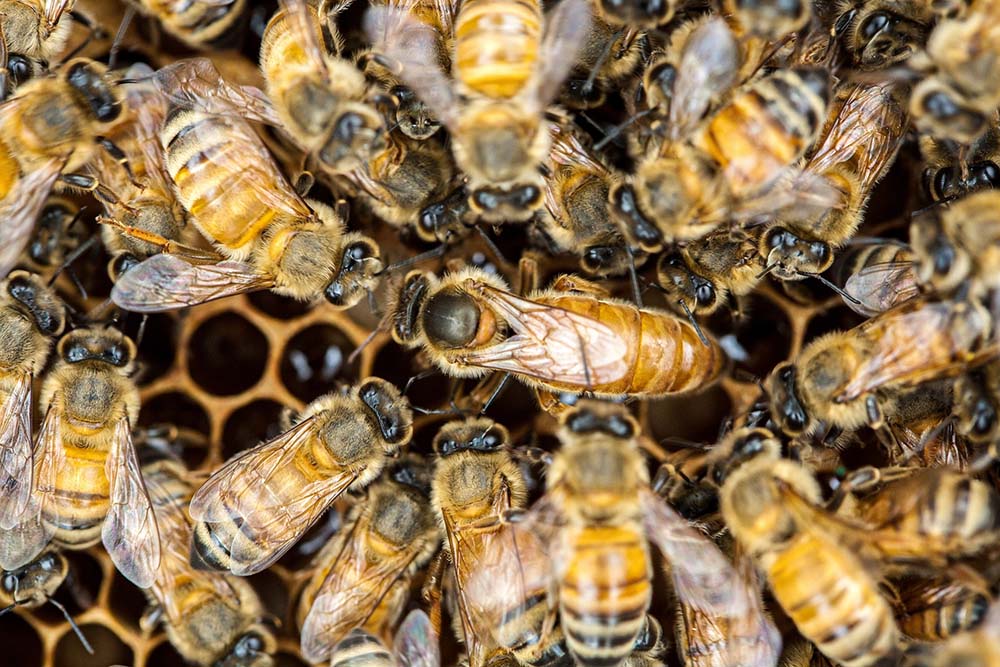Requeening a hive and purchasing a queen bee

Beekeepers often find that some honey bee colonies produce more honey than others. This can happen even though the colonies are all in the one apiary with the same conditions and types of flora. Often these production differences are a result of variations in the strain of bee and the quality of the queen in the individual colonies.
Beekeepers can change the strain (or type) of bee in a colony, by removing the queen and replacing her with a queen of the desired strain - this procedure is known as requeening a colony. Requeening is also used to replace queens that are old or have reduced egg laying capacity.
Requeening your hive
Laying queens
- may be bought from a queen breeder, or
- reared by a beekeeper who has a good understanding of bee behaviour, bee handling and beekeeping.
Importing bees into Victoria – you must have a health certificate
If you wish to import bees (bee colony, bee nucleus, queen bee or queen cell) into Victoria from any state or territory regardless of whether you are purchasing, selling them or gifting them, you must seek approval from Agriculture Victoria and be issued a health certificate.
To apply for a health certificate visit moving honeybees interstate. It may be possible to include multiple consignments on the one health certificate. If you have any questions about health certification, contact honeybee.biosecurity@agriculture.vic.gov.au
It is illegal to import bees to Victoria without a health certificate issued by Agriculture Victoria.
If you are receiving bees (queen, queen cell or bee colony) from interstate ask for a copy of the health certificate
If you are purchasing or being gifted bees (bee colony, queen or queen cell) ask the seller/provider for a copy of the health certificate approving the importation of bees into Victoria.
The health certification t process includes due diligence checks done by both a government apiary officer in the originating state and is reviewed and approved by a government apiary officer in Victoria. It helps to ensure that the bees you are purchasing were produced using approved bee biosecurity practices and in compliance with apiary legislation.
Seizure, destruction and penalties apply if you do not have a health certificate
Illegally imported bees can be seized and destroyed under the Livestock Disease Control Act 1994.
Research the characteristics of the bees you are purchasing
Beekeepers should seek a queen mother to breed from, whose offspring worker bees (and colonies) display ideal characteristics such as gentle temperament, disease resistance, low swarming tendency and excellent honey production.
It is important that beekeepers undertake their own research and enquire about the bees they are purchasing.
Further information and reading
- The Australia Queen Breeders Association
- The hive and the honey bee (1992). Edited by J Graham. Published by Dadant and Sons, Hamilton, Illinois, USA.
- Queen rearing (1962). By H Laidlaw and J Eckert. University Press, Berkly, California, USA.
- Queen rearing (1981). By L Snelgrove. Published by Snelgrove and Smith, Avon, UK.
- Raising queen honeybees
Purchasing queen bees
To learn more about purchasing queen bees or requeening your hive join your local bee club or visit The Australia Queen Breeders Association.
Protecting yourself
Techniques for safe handling of bees should be understood before opening hives and wear adequate protective clothing including a bee veil. For more information visit safe beekeeping practices.